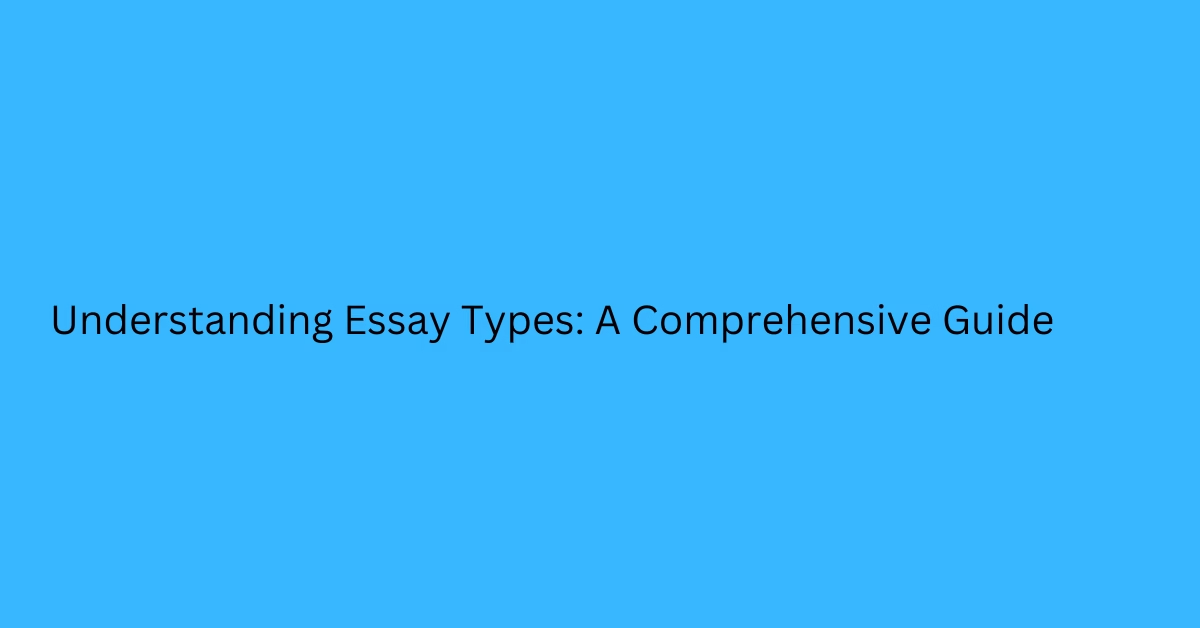Essays are versatile forms of written expression, each designed to serve a specific purpose and communicate ideas effectively. This article explores the diverse landscape of essay types, providing insights into their unique characteristics, objectives, and applications.
Narrative Essays: Storytelling with Purpose
Narrative essays transform personal experiences into compelling written narratives. Unlike simple storytelling, these essays blend personal anecdotes with deeper meaning, inviting readers to journey through the author’s experiences. They typically feature:
– A clear storyline with a beginning, middle, and end
– Personal reflections and emotional depth
– Vivid descriptive language
– A central theme or lesson learned
Expository Essays: Illuminating Understanding
Expository essays are informative tools designed to explain, clarify, and educate. These essays prioritize objectivity and clarity, breaking complex topics into comprehensible segments. Subcategories include:
– Cause and Effect Essays: Exploring relationships between events
– Compare and Contrast Essays: Analyzing similarities and differences
– Process Essays: Detailing step-by-step procedures
– Definition Essays: Providing in-depth explanations of concepts
Argumentative Essays: The Art of Persuasion
Argumentative essays represent intellectual discourse, presenting a clear position supported by rigorous evidence and logical reasoning. Key characteristics include:
– A well-defined thesis statement
– Multiple supporting arguments
– Acknowledgment and refutation of counterarguments
– Credible sources and empirical evidence
– Logical progression of ideas
Analytical Essays: Dissecting Complex Ideas
Analytical essays involve systematic examination and interpretation of a subject. Commonly used in academic and critical contexts, these essays:
– Break down complex topics into constituent parts
– Evaluate relationships between ideas
– Provide critical insights
– Demonstrate deep understanding through detailed analysis
Descriptive Essays: Painting with Words
Descriptive essays create immersive experiences through rich, sensory language. They aim to:
– Generate vivid mental images
– Evoke emotional responses
– Use elaborate, nuanced descriptions
– Focus on detailed observations
Persuasive Essays: Inspiring Action and Change
Persuasive essays go beyond presenting information and actively attempting to influence readers’ perspectives or behaviors. They employ:
– Emotional appeals
– Logical arguments
– Rhetorical strategies
– Strong, convincing language
Reflective Essays: Personal Growth and Insight
Reflective essays provide a platform for introspection, encouraging writers to:
– Examine personal experiences
– Analyze personal growth
– Connect past experiences to current understanding
– Demonstrate self-awareness
Research Essays: Academic Exploration
Research essays represent scholarly investigation characterized by:
– Extensive academic research
– Rigorous source evaluation
– Formal citation methods
– Objective analysis
– Contribution to academic discourse
Creative Essays: Artistic Expression
Creative essays blur traditional boundaries, offering:
– Experimental narrative structures
– Innovative language use
– Personal interpretation
– Artistic exploration of themes
Personal Statement Essays: Professional Narratives
Typically used in academic and professional applications, these essays:
– Highlight personal achievements
– Demonstrate potential and aspirations
– Provide context for personal journey
– Showcase unique qualities
Conclusion
Understanding different essay types empowers writers to communicate more effectively, tailoring their approach to specific contexts and objectives. Each essay type offers a unique lens through which ideas can be explored, analyzed, and shared.
Writing Tips Across Essay Types
– Understand the specific requirements of each essay type
– Develop a clear, focused thesis
– Use appropriate evidence and examples
– Maintain a logical structure
– Edit and refine your work
– Consider your audience and purpose
By mastering these diverse essay forms, writers can engage, inform, and inspire readers across various personal, academic, and professional domains.

